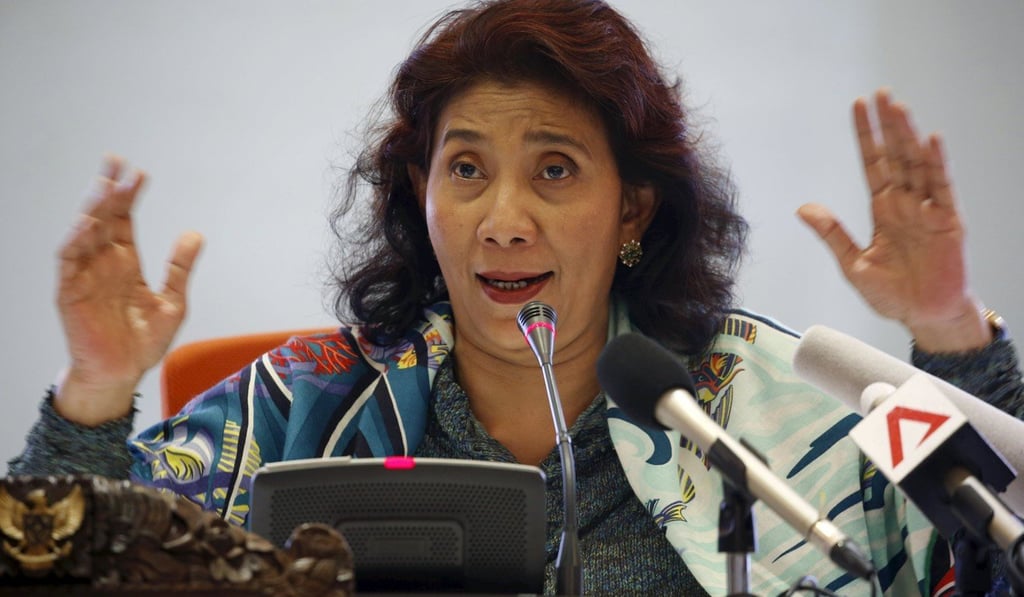Chinese fishermen: off the hook in Indonesia now Pudjiastuti’s gone?
- With her fondness for sinking foreign vessels, Susi Pudjiastuti breathed life into Indonesia’s fisheries
- Now that Jokowi has cast her adrift, will her replacement have the backbone to reel in China?

Sprawled out on a hotel sofa in a dramatic black jumpsuit, a plunging neckline on show, Susi Pudjiastuti was in need of advice: should she take the cabinet post offered to her by Indonesian President Joko “Jokowi” Widodo “when I don’t work well with other people”?
Two days later, on October 26, 2014, the one-time fish trader and owner of the country’s largest small-plane airline was named fisheries minister, one of the more eye-catching choices among the eight women in Widodo’s 34-strong cabinet.
Five years on, with her term brought to an end by backroom politics, Pudjiastuti says the whole experience was enjoyable because the president is an “extraordinary person” who gave her the freedom to do what she wanted.
That, she says in an interview last week, “has become like a curse” because it overshadows the dismantling of a system under which Chinese, Thai and other foreign companies, with the connivance of rent-seeking local businesspeople, simply transferred their catch to homebound mother ships.

As investors they were meant to process their fish at a designated Indonesian port. But Pudjiastuti says most of the purported processing facilities were empty buildings only there for show, leaving the 10,000 foreign fishing boats to plunder the country’s maritime resources at will.